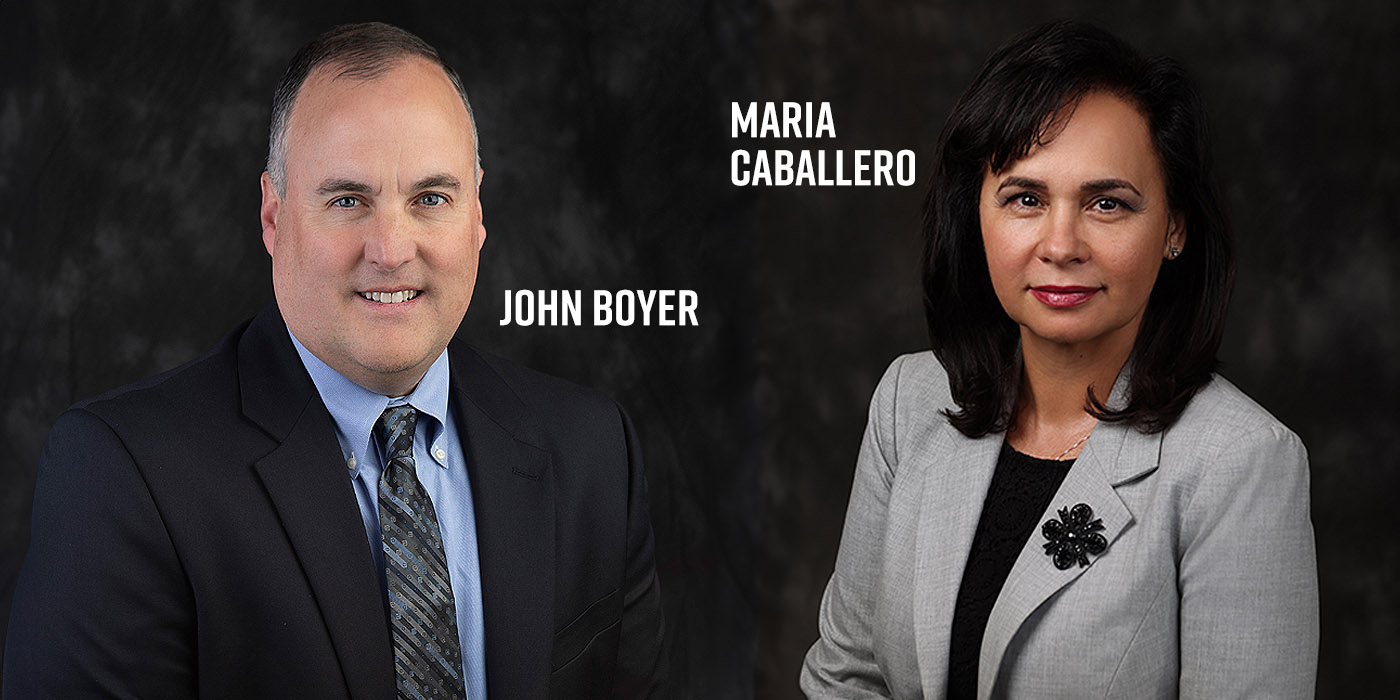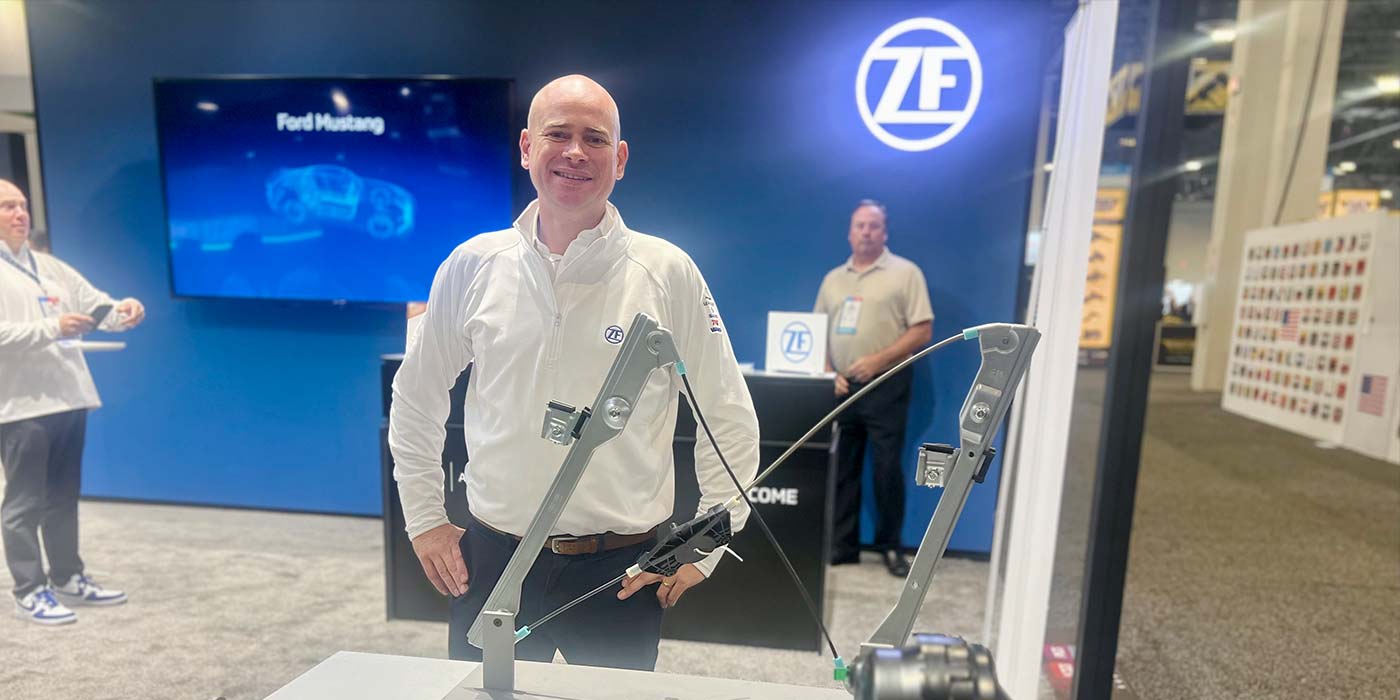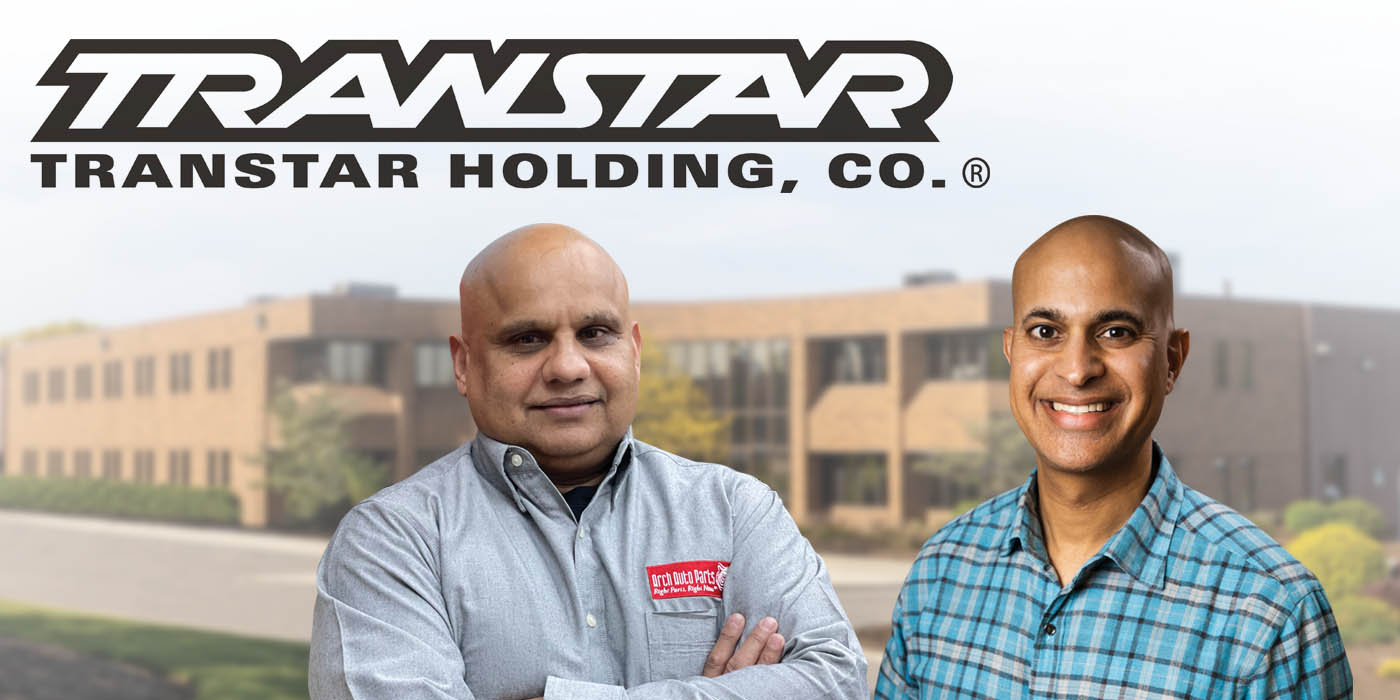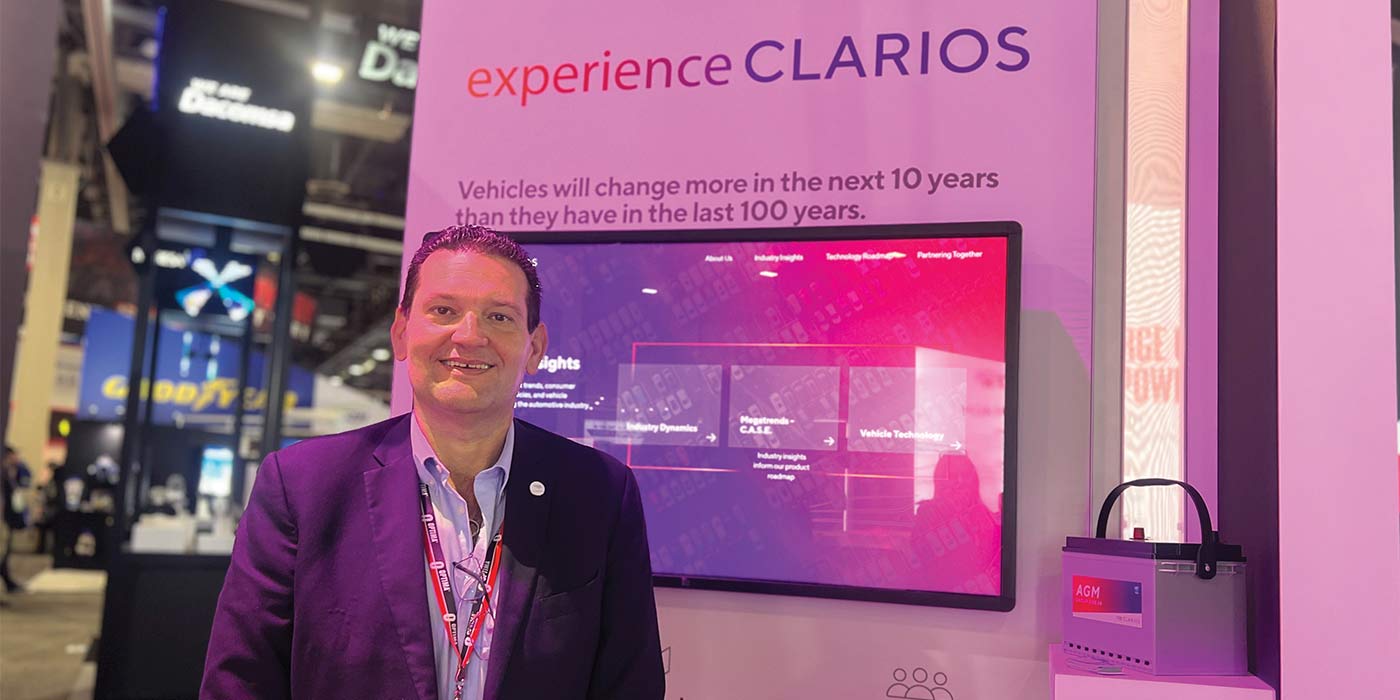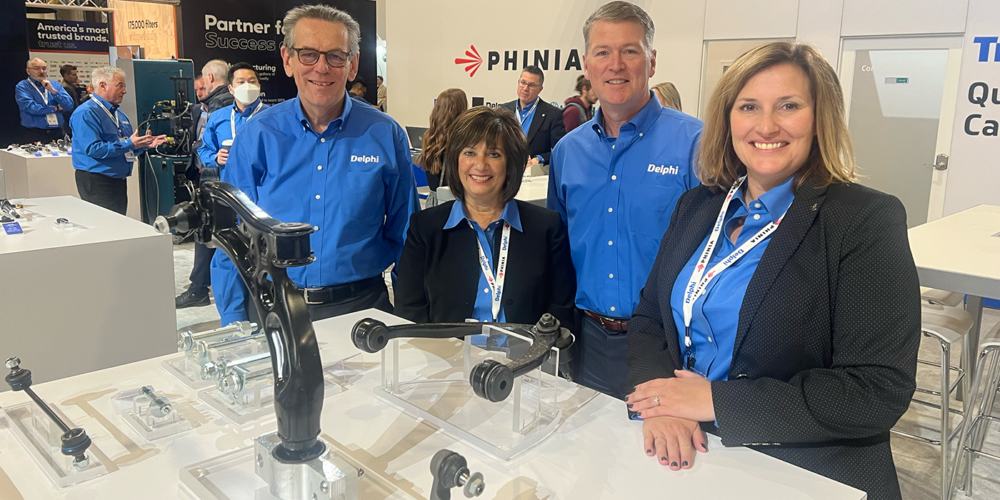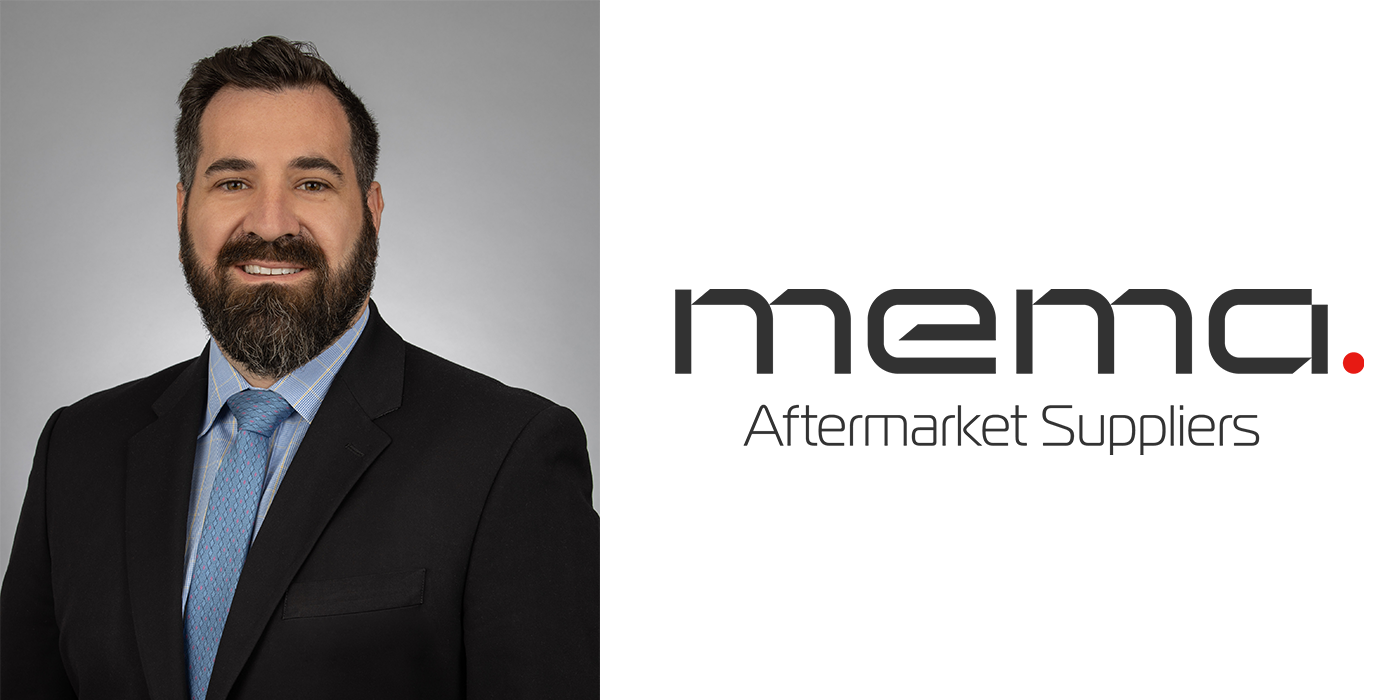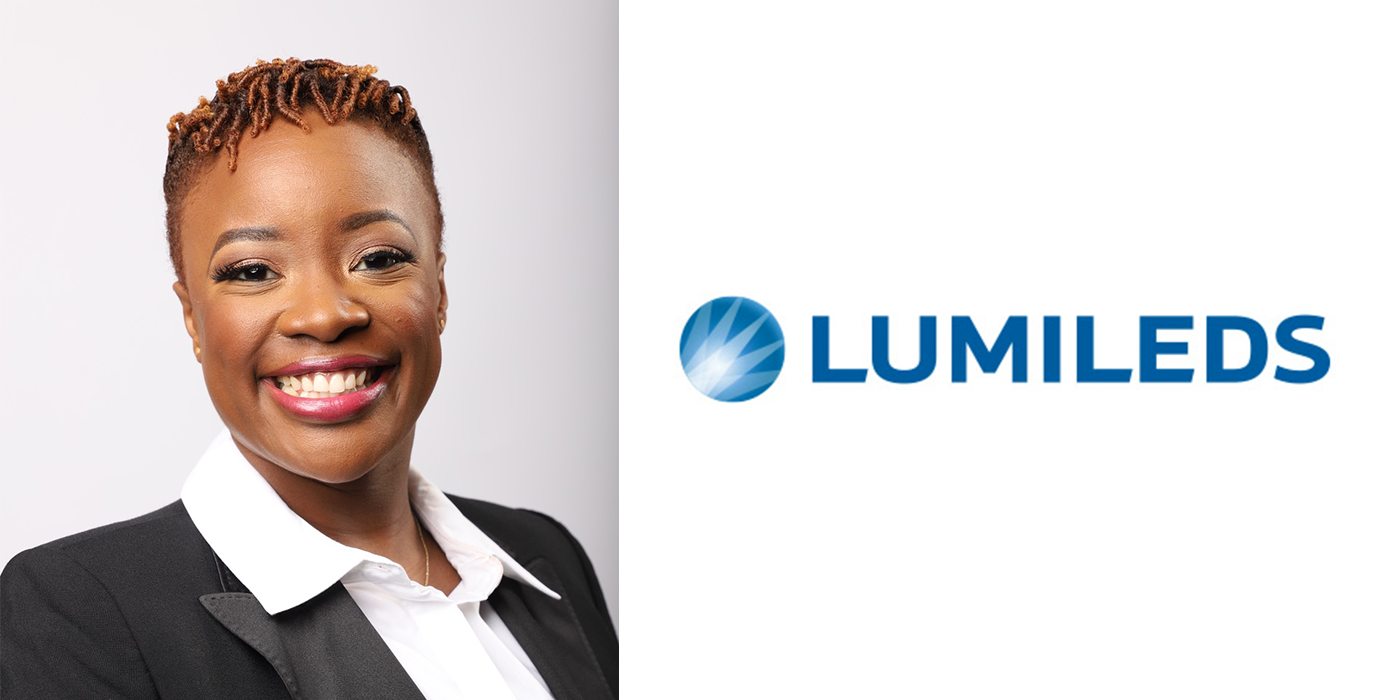‘Know Your Parts’ is the tagline of a new multi-pronged call to action that AASA recently unveiled, in connection with a new Special Report from the association’s Marketing Executives Council (MEC). For those who have not yet read the report, what are the three to five key points you would like them to know and think about?
The AASA “Know Your Parts” campaign is an initiative of the association and the AASA Marketing Executives Council (MEC). Since its formation in 2006, the Council has studied a growing trend among various channel partners featuring lower-cost, often lower-performing aftermarket parts in an attempt to offer more competitive pricing and/or improve profit margins.
These low-cost, off shore, generic auto parts are flooding the aftermarket through out every level in the distribution channel. These low-cost, low-quality parts may not meet original specifications and could pose a potential danger to both the technician installing them and the consumer driving the car on which they are installed. And the entire aftermarket could suffer from the resulting loss of public confidence in our parts and services.
The best way for everyone throughout the supply chain to ensure safety, performance and value of auto parts is to specify brand name products from trusted full service suppliers. The AASA campaign calls for the automotive aftermarket industry to stand united and encourage all aftermarket supply chain partners and consumers to “Know Your Parts.
AASA will have the opportunity to get the “Know Your Parts” message out to a significant portion of the industry at the AAPEX Show in November. How to you plan to utilize this opportunity?
It was a logical choice for AASA to kick off its “Know Your Parts” at AAPEX – the largest annual gathering of the automotive aftermarket in North America. The campaign will have a multi-media exhibit on the main floor of the exhibit hall, featuring the public service announcement (PSA), produced by NASCAR Performance with a grant from the University of the Aftermarket Foundation.
Campaign materials also will be available at the booth: “Know Your Parts” buttons, the talking points pocket card, an informational flyer and copies of the two AASA MEC Special Reports which explain the situation and issue the industry call to action: “Independent Repair Industry: Focus Group Findings on Buying Influences of Repair Professionals” and “Independent Aftermarket Image: Quality Does Matter.”
All AASA members exhibiting at AAPEX will receive “Know Your Parts” items for their booths in the AASA membership packets which will be distributed on Monday, Nov. 2. Materials will include the AASA “Know Your Parts” member booth sign, buttons and talking points pocket cards. Members can request copies of the “Know Your Parts” PSA to play in their AAPEX exhibits and can utilize the “Know Your Parts” theme in their marketing campaigns.
“Know Your Parts” campaign materials also will be available at the AASA Member Center, Sands Rooms 104-106.
In the September Special Report, AASA addresses the issue of globalization and the fact that auto parts being manufactured outside the U.S. is a reality today. However, you believe some consideration should be taken when buying non-U.S. manufactured parts. To quote: “The only way to ensure the safety, performance, reliability and true value of a part is when it is supplied by a Full Service Supplier, regardless of where it is manufactured.” Can you talk more about what differentiates a Full Service Supplier that manufactures product overseas from an offshore supplier, and what are the potential implications (to the manufacturer, distributor, consumer)?
The term “Full Service Supplier” as used in our “Know Your Parts” campaign and “Special Reports,” refers to manufacturers that provide the essential services which include, among others, product specifications, quality control, product liability, research and development. Full Service Suppliers design the products they sell and stand behind them regardless of where they are manufactured.
Generic, off-shore suppliers primarily reverse engineer the products that Full Service Suppliers innovate. Once these parts are shipped to the United States, any resulting problems become the purchaser’s responsibility.
The resulting lost sales to the Full Service Supplier can have devastating impact on the entire independent aftermarket. Valuable services that support the product line such as sales force, cataloging and technical support could be lost.
From the distributor’s standpoint, purchasing parts directly from off-shore suppliers means that important legal considerations such as quality control, intellectual property protection and product liability now become the distributor’s responsibility. These vital protections would have been covered if the parts were purchased through a name brand manufacturer.
To the technician, low-cost, low-quality parts mean the possibility of having to do the job more than once – and damage to their professional reputation when that occurs. Most technicians want to do the job right the first time and build relationships of trust with their customers. As our focus groups showed in our Special Report, “Independent Repair Industry: Focus Group Findings on Buying Influences of Repair Professionals,” that is why technicians value quality above all other buying influences.
Most important, these low-quality parts pose a serious potential threat to consumers. By specifying and authorizing only brand name parts, the consumer is assured of safety for themselves and their families.
In addition, the association does not support direct importing by channel partners. What’s the primary concern? Do you feel that the auto parts industry could face a situation similar to the recent issue related to Chinese imported tires?
U.S. law stipulates that the importer of record bears the legal manufacturers’ responsibility in the event of product failure and/or recall. Ignorance is not a legitimate defense and is referred to as willful blindness.
In the particular case you mention, the U.S. distributor of tires produced in China involved in one of the largest recalls in our country’s history. But, a more important consideration is the potential risk to consumer safety in such an event.
Distributors who are considering direct import of auto parts would be well advised to thoroughly investigate the serious legal implications of being the importer of record.
Explain AASA’s position as it relates to non-North American made product. What does the association hope to accomplish with this program in the long-term?
Education is the key to the AASA “Know Your Parts” campaign. AASA hopes to raise the awareness of everyone throughout the supply chain from the manufacturer all the way down to the vehicle owner. Our message, “Know Your Parts,” holds unique but similar meanings to everyone in the supply chain. Ultimately, anyone purchasing auto parts or having them installed should do their homework prior to authorizing repairs. Where a part is made is not important, who stands behind it is.
Given the dramatic changes in the economy and a possible permanent shift for the aftermarket, is there a need to change the way products are distributed in the aftermarket? The report cites direct importing and the Internet as “new sources” for product. Doesn’t this indicate that the manufacturer isn’t providing something that the customer needs?
Not at all. Manufacturers have depended on distributors and national retailers to supply the channel for nearly 100 years. This model of distribution partners is as effective today as it has ever been. What has changed are the buying options and education is needed to fully comprehend the effects that may have.
The Internet has truly opened a world of buying options especially to the consumer. However, not all parts are created equal. Just because a product is advertised as a replacement part does not assure it will perform as intended. As always, buyer beware.
In the August “Independent Repair Industry” report that MEC issued, it is written that “Essential Services Do NOT Increase Technician Loyalty.” How do you balance this fact from the study with the directive from the September report, which says that supplier customers need to take into account the essential services that only full service suppliers can provide? How do you convince technicians not to look at price alone?
The difference is between technicians and those who distribute parts. Technicians depend on their supplier partners to provide the services they need such as cataloging, sales representation, warranty and more. In many cases, the shop owners and technicians are unaware that the Full Service Supplier or manufacturer provides these services to the parts distributor.
Our Special Report showed that, although price is important to technicians, product quality clearly is their Number One priority. Since technicians do not buy directly from manufacturers, it is understandable that they do not view the essential services offered by manufacturers to distributors as a motivation for loyalty toward a specific brand. However, product quality of a specific manufacturer is an influencing factor.
The September Special Report also states, “The resulting problems of the migration to lower-price, lower-quality products is a broad spectrum. If left unchecked it could have serious consequences on the entire automotive aftermarket.” Talk a little more about that.
Use of lower-price, lower-quality products can have an overall impact on the vehicle owner’s perception of the independent aftermarket as a reliable place to have their car repaired. One bad experience can drive them back to the car dealer, and to view OE dealers as the only trusted repair source.
“Know Your Parts” is not a campaign based solely on the potential of lost sales to the manufacturer. For channel partners – namely distributors and retailers – those who chose direct importing will bear the full responsibility for product failure in the eyes of the court as if they had manufactured the product. Subsequently, quality control and if necessary, product recall become their sole responsibility. Direct importing also brings with it longer lead times and higher inventory costs.
For the repair facility and professional technician, problems begin with safety. There are serious safety concerns not only to the technician, who may be under the hood with a faulty product, but also to the customer if a part should fail catastrophically. Think of the safety risks associated with the tire recall of a few short years ago and consider if the same thing occurred with substandard brakes, chassis or other hard parts. Then there is the damage to a technician’s reputation and a shop owner’s business due to comebacks and having to do the job more than once.
For all concerned in the aftermarket is the potential problem that essential services currently offered by full service suppliers could be at risk. Vital aftermarket business tools such as application catalogs, technical support and training currently are provided at no cost to channel partners. But as these channel partners ‘cherry pick’ the lines or move to low-cost products on popular, fast moving parts, the brand name manufacturer may be unable to continue to support these additional services.
If price becomes the only determining purchasing factor, then these services may be sacrificed to compete. Competition with low-cost, short-line suppliers makes it even more difficult for full-line suppliers to support the slower-moving parts. In a market where everyone competes for the fast moving, popular parts, who will supply the less popular, but still vital, parts?
How do you see ‘cherry picking’ having a trickle-down effect on the market?
In some cases, brand name products are being supplemented or “cherry picked” with generic products on high-volume popular part numbers. In the case of private label or house brands there is the possibility that the counterperson and subsequently the consumer may not ever know. A particular brand name manufacturer may be promoted on a given product category or reported as the supplier of a private branded part. However, the practice of cherry picking raises serious questions as to ’what’s in the box.’
Cherry picking probably cannot be entirely eliminated. Freedom of choice after all is the backbone of American democracy. Many parts resellers offer ‘good, better and best’ lines as a means of providing choice to their customers. Higher-mileage, older vehicles may not require or the owners may not be able to cost justify OE-quality or equivalent replacement parts. This seems the best way to address choice.
The report dismisses the notion that generic parts made in a low-cost country could ever be of the same quality as a brand name part made in the same country. How do you defend this statement when we see an increase in the number of vehicles and automotive products from other countries increasing in popularity in the U.S. today?
AASA firmly supports the belief that it is not important where a product is made but rather who stands behind it. A generic product may in fact be produced to the same level of quality as a name brand part. However, there is no assurance of this. Buyers should ask themselves, “If there is a problem with this part, who will be there to back me up?”
It is important to note that the “Know Your Parts” is definitely not about protectionism. This campaign is about doing what is right for everyone concerned and not one particular member within the supply chain. Low-quality auto parts pose a potential safety hazard for anyone who repairs or drives a car. Our goal is to help everyone in the supply chain to make better informed decisions when choosing auto parts.
While you are able to easily communicate (and garner support for) the “Know Your Parts” message at the manufacturer level, how do you plan to reach professional technicians and repair owners with this message?
Communication with technicians and shop owners is vital to the “Know Your Parts” campaign. The message for repair professionals is to investigate before installing a low-cost part. They should find out by whom and where it was manufactured, which can come in the form of manufacturer supplied literature or searching the web. If manufacturer information cannot be easily found, then the part probably isn’t a good choice to use on a customer’s vehicle.
The first step is our public service announcements produced in conjunction with NASCAR. These PSAs started airing in October during NASCAR events on ESPN and SPEED, and will continue in November with other NASCAR programming.
We also are delivering our message through articles in the magazines targeted at technicians. We have reached out to professional technician trade associations and offered to provide materials through their communication vehicles.
We will launch a “micro-site” within the AASA Web site soon where technicians and all aftermarket channel partners can go for more information. Our plans include providing informational flyers which can be downloaded free and distributed to customers.
How well do you think the “Know Your Parts” message will fit with the strategy of brands like ACDelco, NAPA, CARQUEST and Duralast?
Private labels cannot be lumped into a single category. This was noted in the focus group research on buying influences of repair professionals and the resulting Special Report. We feel the “Know Your Parts” messaging is as important to major private brands such as these as they are to manufacturers’ brands. Many of the major private brands promote openly the actual manufacturer of the part and some go as far as co-label.
Auto repair may be one of the few instances when consumers are not aware of the brand of product they are paying for. How do we encourage consumers to become more proactive in this regard?
Through the “Know Your Parts” campaign, we call on vehicle owners to research a part before authorizing repair. If information isn’t readily available or easily found on the Web, then chances are you do not want it installed on your vehicle. This also points again to the vital role of the technician and shop owner, who will need to educate their customers on the importance of brand name, quality parts.

